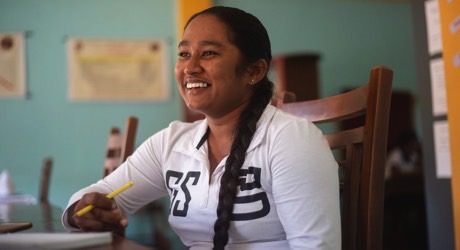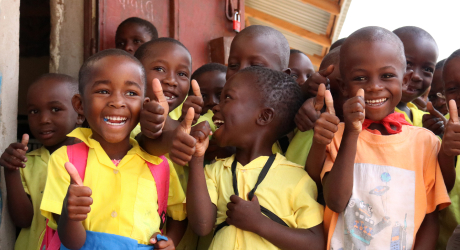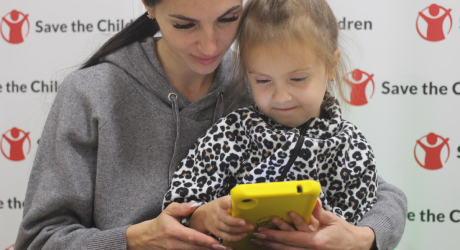Footprints Project
Since 2005, travelers like you have helped us change the world through micro-donations.

-
A total of
6117
Travelers
-
donated
$20009.91
(100% funded) -
to help improve
Employment
-
impacting
2505
people -
in
Sri Lanka
This project improves the economic wellbeing of young women and girls through decent employment and sustainable livelihoods.
Its over-arching strategy is to provide greater private sector engagement and community support for the economic inclusion of women and increase demand driven skills for young people.
Key successes:
• Delivery of technical and soft skills training to 360 young women and 200 young men.
• Delivery of entrepreneurship training and seed funding for business start-ups for 100 young women.
• Identi?cation and adaptation of 21 training courses by TVET centres in consultation with local employers that deliver the skills required of employers, and are in alignment with the education background and capacities of vulnerable youth.
• Private sector partnerships were established with local employers, and 302 participants who completed on-the-job training (OJT) were employed in decent work by local private sector employers identified by the project.
• Promoted youth and gender friendly businesses at the local, district and national level, with the implementation of six workshops which present the 'business case' for investing in young women.
• Alumni networks in each of the two districts supported and developed to facilitate youth mentoring and engagement of young people in initiatives at the local, district and national levels.
Challenges
An extensive gender analysis was conducted and indicated significant constraints on choices of training made by male and female youth, in alignment with family expectations and societal norms. There were few instances of young women choosing non-stereotypical training courses and successfully completing graduation, providing positive role models for later trainees. Project-level strategies have therefore focused on ongoing training and sensitisation with stakeholders at multiple levels to challenge those gender-limiting roles and expectations.
The analysis also identified safety and protection issues for young women in accessing training and employment. So, simultaneously the project has implemented strategies to address, reduce and raise awareness of the sexual harassment and gender-based violence that young women experience within, and travelling to and from, their workplaces.
Attitudes within the Community
Coping strategies adopted by youth and families during the civil conflict persist today, including a reliance on informal migration to earn a living. Young people commonly travel to middle-eastern countries for work opportunities, and they are highly vulnerable to exploitation and abusive labour practices.
Feedback from project beneficiaries and their families to date indicate that youth believe they can benefit from the training, and those that still wish to migrate believe they’ll have stronger technical skills and be better equipped to access decent work in host countries by engaging in training. The experiences and success stories of young people engaging with these opportunities have provided a great influence in helping overcome the reluctance of other youth to participate in training, rather than migrate immediately with limited skills.
The project also facilitates linkages and on-the-job training with local businesses, thereby offering a viable alternative to migration and an opportunity for young people to remain with their families and communities. This has been well received and embraced by the communities which will also have a positive ripple effect.
Project Case Study
Through promoting women’s economic leadership, we’re helping young women between 15-26 years to get the right skills to secure decent employment. Youth living in the Eastern province remain attracted to irregular migration as they lack skills due to lack of skill development opportunities in the area. Because of this and the encumbrance of entrenched social norms, many girls marry early to ease off the family burden.
With Plan International’s support, young girls like Rajagopal, who couldn’t meet her ambition in life, were given new opportunities to get vocational skills and pursue a career to support her family.
Plan International works with sustainable models within societies.
This project sought to build the capacity of existing vocational training providers, to ensure that training is more effectively linked to market demands and the needs of employers. It established mechanisms for training providers and employers that will continue into the future, ensuring an ongoing system of coordination between the complementary stakeholders.
The project also built local demand for vocational training services, as young men and women realised they can access decent work opportunities in their own country, instead of migrating for more lucrative work opportunities overseas where they are vulnerable to exploitation and abuse. The project built peer-to-peer support networks amongst youth entrepreneurs, and links with business mentors to provide ongoing guidance and advice to youth businesses after completion of the project.
Since the project was completed, Plan International has ceased operating in Sri Lanka, however the benefits of the project and the positive impact on project participants continues.
Traveling soon? When you buy travel insurance with us, you can make a contribution towards a cause you care about.
Get a quote






